Grampians RDA video transcript (DOCX 17.54 KB) ![]()
The RDA Grampians Committee drives prosperity by identifying and advocating for regional growth and investment. From the development of the Grampians New Energy Taskforce to the creation of a regional food hub, the Committee brings investment to the region and creates jobs.

Who we are
RDA Grampians Committee Members are selected for their business expertise in the region’s key economic areas. The high calibre team has global, national and local experience in housing, new energy, public administration, agriculture, education and tourism. Underpinning this expertise is the Committee Chair, Stuart Benjamin who has worked across multiple business sectors and chairs the Small Business Ministerial Council and the Grampians New Energy Taskforce.
Committee members
Chair - Michael Tudball
 Michael Tudball (AFSM FAICD MIMC) is a contemporary executive with a leadership foundation built upon extensive background in communities, Local and State governments intertwined with private and not-for-profit sector experience.
Michael Tudball (AFSM FAICD MIMC) is a contemporary executive with a leadership foundation built upon extensive background in communities, Local and State governments intertwined with private and not-for-profit sector experience.
Michael has specific strengths in local government, economic development, emergency management and resilience, transport, health and employment sectors with strategic work including advice and policy development at Local, State and Federal levels.
He now spends his time in Executive Mentoring, Public Speaking, Leadership support, Interim Executive and Board Governance roles in particular supporting local government and communities.
John Fitzgibbon
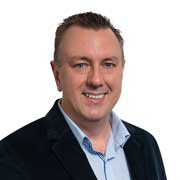 Radio and television industry professional John Fitzgibbon is new to the committee.
Radio and television industry professional John Fitzgibbon is new to the committee.
In his current role as General Manager of Ballarat’s 3BA and Power FM he has driven a strong community focus, including delivery of Winter and Christmas Appeals.
Additional roles have included serving on the board of the North Ballarat Football Club, working for six years as a director of Ballarat Regional Tourism, becoming a member of the Ballarat Community Safety Committee and standing as Independent Chair of the Headspace Ballarat Consortium.
He was also involved in the development of Mars Stadium in Ballarat and establishing Ballarat Regional Tourism as a standalone, successful entity.
John is looking forward to working as a committee member to help grow the region’s advanced manufacturing, tourism, agribusiness and food production sectors.
Justin Gilbert
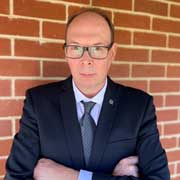 Ballarat local Justin Gilbert has built a 30-year career in finance, information technology, data analytics and business intelligence and is currently employed at Federation University Australia as Manager Planning Analytics and Reporting in the Chief Operating Office.
Ballarat local Justin Gilbert has built a 30-year career in finance, information technology, data analytics and business intelligence and is currently employed at Federation University Australia as Manager Planning Analytics and Reporting in the Chief Operating Office.
He has worked extensively with small businesses, non-profits, corporates and educational institutions, all based in Ballarat but with a strong presence throughout Southern and Western Victoria and the Grampians.
Justin has also clocked up seven years’ board experience in tourism, small business and regional development, focusing on financial, corporate governance and strategic planning.
His contribution within the committee will centre on exploring ways to invest and upskill the region through education and training.
Paul Hooper
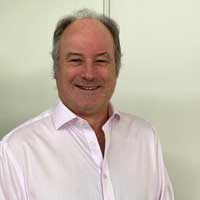 Born and raised in Ararat, Paul Hooper is well versed in local governance.
Born and raised in Ararat, Paul Hooper is well versed in local governance.
Born and raised in Ararat, Paul Hooper is well versed in local governance.
An Ararat Rural City Councillor for 15 years including six terms as Mayor, he played a role in the Return of Passenger Rail to Ararat, Challicum and Ararat Wind Farms, Duplication of the Western Highway, Extension of Hopkins Prison and the East Grampians Pipeline.
Paul has also amassed 40 years’ experience in small business including supermarkets, fresh produce, commercial and domestic property development, consulting and education.
He’s a former chair of the Victorian IGA Committee and the Central Highlands Mayors’ and CEO's Forum – a peak advocacy for eight councils (Moorabool, Ballarat, Hepburn, Golden Plains, Central Goldfields, Ararat, Northern Grampians, and Pyrenees).
Paul’s core strength is in leveraging infrastructure for population growth and industry expansion.
Linda Wong
 Linda combines over 25 years of professional consultancy and industry experience, which has developed her into a well-rounded, dedicated and astute business woman.
Linda combines over 25 years of professional consultancy and industry experience, which has developed her into a well-rounded, dedicated and astute business woman.
Linda’s professional career began as a graduate from the University of Waterloo, Canada in 1993, where she obtained an Honours Bachelor of Mathematics in Business and Information Systems. Having worked in top-tier consulting organisations such as KPMG, Gartner and Deloitte, she has consulted to high-profile clients in Canada, US, UK, Singapore and Australia across various industries including Not-for-Profit, government agencies, financial services, retail, insurance and health. As such, Linda has first-hand experience working in high-pressure situations, with tight deadlines and the dedication to deliver quality work.
Amongst Linda’s strengths is her ability to bring together the knowledge that she has collected over her career and adapt it to various cultures and circumstances in a non-confronting and engaging manner. With strong strategic thinking, Linda combines her broad experience in complex environments to execute and deliver outcomes. Her dedication to people and teamwork has often seen her leading large change programs to meet the vision and mission of organisations. Linda brings great drive and tenacity to programs requiring rigor and clear direction, but also provides a good mix of empathy and support.
Using effective communication and observation skills, Linda builds rapport across all levels of an organisation. Her clarity of thinking provides direction to staff and the capability to make the complex simpler. Utilising her strong sense of commercial acumen, Linda has demonstrated success in identifying opportunities, developing relationships and operating businesses from the ground up.
Linda currently combines her three passions of people, experiential learning and horses through the roles she currently holds as Managing Director at Runway HQ Limited, Director and Chair of charity organisation Hands of Change and her PhD studies that she is completing with Deakin University (part-time).
Linda Kwok
 Based in Horsham, Linda Kwok is director of LHLK Architects and a member of the Victoria Building Appeals Board.
Based in Horsham, Linda Kwok is director of LHLK Architects and a member of the Victoria Building Appeals Board.
Linder has held directorships in health, water, early years learning and sports sectors. She has also taught at universities in architecture, environments and business faculties.
Linda holds a Bachelor of Architecture, a Postgraduate Diploma in Urban Design and a Master of Business Administration. She is a fellow of the Australian Institute of Company Directors.
Christine Ferguson
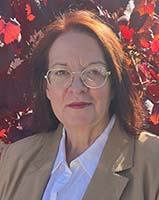 Christine Ferguson PSM has lived in rural communities in the Grampians region most of her life and has a great affinity with Western Victoria and its communities.
Christine Ferguson PSM has lived in rural communities in the Grampians region most of her life and has a great affinity with Western Victoria and its communities.
Having worked in the Aged Care sector in Hamilton and Melbourne, before moving to State Government Christine held positions in the Victorian Departments of Sport and Recreation, State Development, Health and Human Services, Environment and Primary Industries and subsequently Land, Water and Planning and Energy and Climate Action.
Christine is an experienced non-executive director and executive leader having delivered public policy and services across social, environmental, economic, and emergency management portfolios. She has a reputation for working collaboratively with stakeholders to cut through complex issues and deliver positive and balanced results.
Passionate about supporting the growth and resilience of rural Victoria, Christine believes the best outcomes are achieved by harnessing the talents of communities and multidisciplinary teams to deliver value through innovation and service excellence.
Zoe Allan
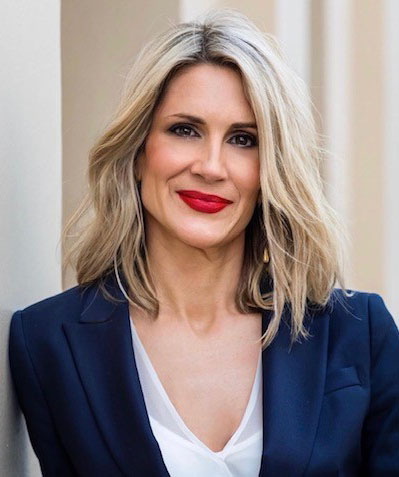 Born and bred in Ballarat, Zoe Allan is a seasoned Executive Search Consultant with more than 20 years’ experience in connecting top executive talent with leading organisations across a range of industries, including Manufacturing and Technology, Agriculture, Mining and Local, State and Federal Government.
Born and bred in Ballarat, Zoe Allan is a seasoned Executive Search Consultant with more than 20 years’ experience in connecting top executive talent with leading organisations across a range of industries, including Manufacturing and Technology, Agriculture, Mining and Local, State and Federal Government.
As the Managing Director of Executive Recruitment firm, Milano Partners, Zoe specialises in identifying and attracting exceptional executive candidates who drive business success and innovation.
Prior to founding Milano Partners, Zoe gained valuable experience in Executive Recruitment with Michael Page International, Hays Specialist Recruitment and Deloitte Australia, where she honed her expertise in talent acquisition and executive placements.
With a proven history working throughout Regional Australia and a deep knowledge of the nuances of regional business, Zoe is passionate about helping regional organisations to develop winning formulas for on-going success and a sustainable future.
Paul Atherton
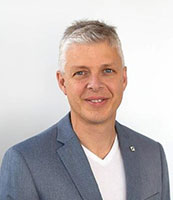 Based in Horsham, Paul Atherton possesses a unique blend of expertise in natural resource management, small business, and regional development. With degrees in both Forest Science and Business, Paul has leveraged his diverse educational background to forge a successful career path spanning over three decades.
Based in Horsham, Paul Atherton possesses a unique blend of expertise in natural resource management, small business, and regional development. With degrees in both Forest Science and Business, Paul has leveraged his diverse educational background to forge a successful career path spanning over three decades.
Paul has been a small business owner and held roles in both the private and public sectors, showcasing his versatility and leadership acumen. His extensive experience in regional development has contributed significantly to the growth and sustainability of various communities and he lists his most significant achievement as various roles, including Project Manager, on the transformational Wimmera Mallee Pipeline project.
Currently, Paul serves as a key figure in community engagement at Donald Mineral Sands, where he brings his wealth of experience and local knowledge and contacts to the table. In this role, he plays a vital role in bridging the gap between the company and the local community, ensuring mutual understanding and opportunity creation.
Paul dedication to regional community development, coupled with his expertise in business and regional affairs, continues to make him a valuable asset in driving positive change and fostering growth.
Jessica Kelly
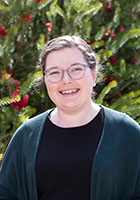 Jessica Kelly is currently the Innovation & Development Manager at Ballarat food manufacturing business, Ferndale Foods Australia.
Jessica Kelly is currently the Innovation & Development Manager at Ballarat food manufacturing business, Ferndale Foods Australia.
Jessica studied her degree in Food Science locally with Federation University, followed by post graduate studies in management, auditing & risk. Jessica is also a graduate of the Victorian Regional Community Leadership program in 2019.
Jessica has a passion for advancing access to regional education and increasing representation of women in STEM & Advanced Manufacturing.
Jacki Whitwell
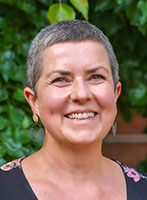
Jacki is an executive leader with more than 20 years’ experience in senior advisory, strategic leadership and social policy roles, bringing sophisticated consulting, policy development and stakeholder engagement skills.
Moving to Ballarat 5 years ago, Jacki established her own consulting business working with not-for-profits, government and the private sector to create positive social impact in the Ballarat community and beyond. During this time, Jacki has also become closely connected with many local organisations and businesses through her role as a Director of the Ballarat Foundation, Director of the Y Ballarat and as part of the Committee for Ballarat Future Shapers Community Leadership Program in 2023.
As a strong and trusted leader Jacki places a high value on genuine collaboration and partnership to achieve optimal outcomes for organisations and communities. Working in emergent and complex policy environments, Jacki’s approach is underpinned by insightful and strategic skills and the application of robust research and analysis.
Working in diverse areas from renewable energy to First Nations policy, early childhood, health and aged care, Jacki is committed to delivering the best outcomes for businesses, people and the planet.
Emily Smith
 Born and raised on a farm at Murtoa and residing in Dooen, Emily has a passion for rural life and seeing all towns be supported to be sustainable, thriving places for people to live and work.
Born and raised on a farm at Murtoa and residing in Dooen, Emily has a passion for rural life and seeing all towns be supported to be sustainable, thriving places for people to live and work.
Emily has completed studies in Food Science and Nutrition and holds a Masters of Public Health Nutrition, and has worked in Local Government, Women’s Health and Primary Care Partnerships.
Emily currently holds a role as Project Manager with By Five, a place-based Early Years Initiative across the Wimmera Southern Mallee, where she works directly with communities and families, small rural health services, large health centres, research organisations including the Murdoch Children’s Research Institute’s Centre for Community and Child Health (CCCH) and all levels of Government.
Having worked in Melbourne and several regional Victorian centres, Emily’s networks and experiences are broad providing her with a solid perspective of the nuance of each community and the need for flexible responses that meet these variances.

What we do
The Committee realises economic opportunity by creating a level playing field for private sector investment. It engages across agencies, industry bodies and the private sector to leverage and coordinate regional effort and influence state and Australian Government policy. It draws upon the data, knowledge, experience and opinions of regional alliances, partnerships and networks to support small-scale projects through to the development of economic sectors.
The Grampians region is positioned to capitalise on renewable energy, manufacturing, tourism and intensified agriculture production. The Committee works with the region to drive investment in:
- Renewable energy by attracting high energy use businesses interested in reliable and affordable zero carbon energy.
- Pilot micro grid energy projects by conducting a feasibility study into behind the grid purchasing arrangements for cost competitive agri-use.
- A regional electricity transmission infrastructure upgrade program.
- A Renewable Energy Workforce Program involving the Asia Pacific Renewable Energy Training Centre, Federation University and VET programs for end-to-end training, learning and placement.
- Strengthening the region’s education and training for local workers focusing on engineering and maintenance, innovation diagnostics and education career pathways.
- Establishing a National AgTech Centre of Excellence to support food production and agriculture sectors.
- Supporting the region’s artisanal food sector through the development of a food hub and ecosystem of technology, innovation, and excellence.
The value of being embedded in Regional Development Victoria
“For the RDA to be embedded in local, state and Australian Governments is incredibly powerful. It allows us to all pull in the same direction. We have 11 Local Government Areas in Grampians they have all different needs and aspiration. The fact that RDA Grampians can pull them together to work on common projects is somewhat refreshing in regional development in Australia.”
- Stuart Benjamin, RDA Grampians Chair .

Who we work with
The RDA Grampians committee collaborates with businesses, not-for-profits, industry bodies and agencies to build sector strengths, promote regional capabilities and leverage regional advantages. It works with:
- Local government areas of West Wimmera, Hindmarsh, Yarriambiack, Horsham, Northern Grampians, Ararat, Pyrenees, Ballarat, Golden Plains, Hepburn and Moorabool.
- Like-minded organisations including the Central Highlands and Wimmera Southern Mallee Regional Partnerships and the Victorian Cross Border Commissioner.
- RDA Committees across Victoria and South Australian border RDA committees to identify synergistic opportunities and boost economic activity.
- Other industry bodies, including Grampians Tourism Board, National Farmers Federation and Grampians based Chambers of Commerce.
Our region
Grampians region fast facts
- 254,711 population
- 92,613 jobs
- $12.718 billion Gross Regional Product
- Healthcare and Social Assistance, Retail Trade and Education and Training are Grampians’ three largest employment industries
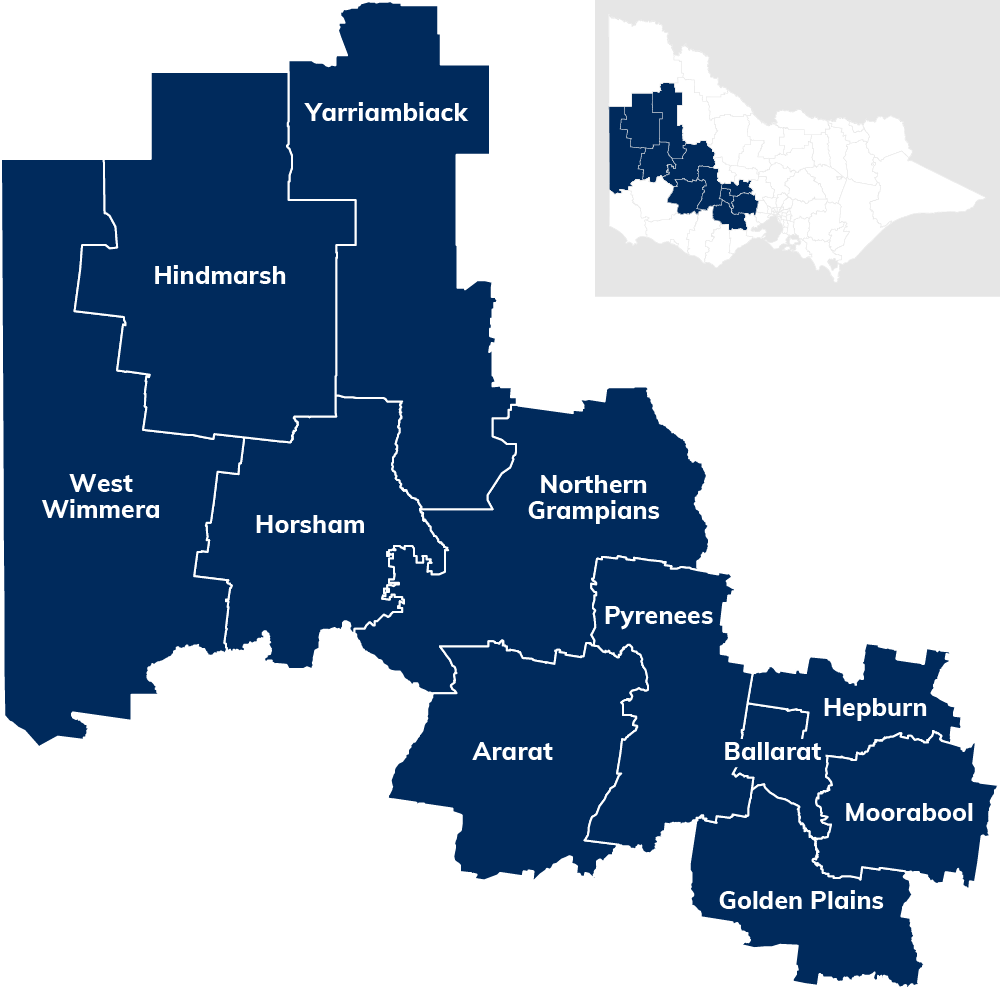
Stretching from the western edge of Melbourne to the South Australian border, the Grampians region includes the major townships of Edenhope, Nhill, Warracknabeal, Horsham, Stawell, Ararat, Beaufort, Ballarat, Bannockburn, Daylesford and Bacchus Marsh.
Steeped in gold rush history the Grampians is home to Sovereign Hill, the Silo Arts Trail and natural attractions including the Grampians National Park, Mt Arapiles and the Little Desert National Park.
Agriculture and food production are major industries across the Grampians, with extensive dryland farming in the Wimmera Southern Mallee sub-region. Opportunities across the region include artisanal food and beverage production, broad acre intensive cropping and diversified agriculture.
In the Central Highlands and Wimmera South Mallee region, particularly Ballarat and Horsham, the services sector is experiencing significant steady growth across health, education, professional services, ICT and hospitality.
Case studies
Influencing policy - Emergency mobile roaming
Over the past 3 years, RDA Grampians has been championing the cause of enabling mobile roaming in emergency situations on behalf of rural and regional communities. Mobile roaming makes it possible a mobile device to automatically connect to an available network when their home network drops out or service is unavailable, which is particularly important in an emergency.
We’ve been working with the ACCC to investigate the possibility of domestic roaming. For years, telecommunications companies argued that emergency mobile roaming was not technically possible. RDA Grampians lobbed to the previous Minister resulting in the ACCC to launching an inquiry.
In October 2023 the ACCC released the Regional mobile infrastructure inquiry 2022-23 report, which supports the technical reports and positions that RDA had submitted:
- Mobile tower access may be limiting regional mobile coverage expansion.
- Temporary mobile roaming is technically feasible.
- Regional, rural and remote consumers report lower-quality mobile services.
Success
The findings within the final report support substantial advancements in the pursuit of mobile roaming. It underscores the feasibility and necessity of mobile roaming and recommends that the Government and industry collaborate to establish frameworks and protocols with mobile network operators for the seamless initiation and deactivation of temporary mobile roaming.
Rural communities will no longer be confined to making only 000 emergency calls across networks. Instead, they will have the ability to reach out to family members, utilise data for Emergency Apps and switch between networks if their primary provider is unavailable. This is a turning point for telecommunications in Australia.
Success is attributed to the entire RDA network working together in support and advocacy. It’s a great example of the strength of combined advocacy to achieve a national impact.
Next steps
We have offered to work closely with the telecommunications industry and government to ensure emergency mobile roaming is operating as quickly as possible. This includes writing to the Minister for Communications and Telstra’s CEO, offering assistance and support in implementing the strategies being considered.
The Optus crash reinforced the need for the mobile roaming capacity, not just in emergencies but at all times. RDA Grampians will continue advocating for mobile roaming to increase telecommunications equality for all regional and rural Australians.
The Grampians RDA Chair Stuart Benjamin is driving the development of renewable energy in western Victoria.
As chair of the Grampians New Energy Taskforce (GNET) Mr Benjamin oversees working groups to maximise the economic and community benefits of investment and innovation in new and renewable energy.
GNET brings together 11 Grampians Local Government Areas, the Central Highlands and Wimmera Southern Mallee Regional Partnerships, Wimmera Development Association, and the Committee for Ballarat. The Victorian Department of Environment, Land, Water and Planning provides secretariat support for the GNET working group.
The taskforce is developing an accord between GNET parties to authorise and empower energy discussions that support feasibility and exploration of alternative energy resources, including geothermal and hydrogen.
GNET initiatives include:
- advocating for transmission infrastructure upgrades to support renewable energy.
- investigating the opportunity to join the Monash University Grid Innovation Hub to drive micro grid planning, research and trial projects across the region.
- increase the use of industry Power Purchase Agreements with local renewable energy generators.
- engaging with the Department of Environment Land Water and Planning and the Australian Gas Network on opportunities for hydrogen generation and/or utilisation in the region.
- support increased electric vehicle travel by building a fast-charging and well-planned charging network for electric vehicles.
- support mosaic farming university research and trials in the region.
Seizing economic opportunity
The Grampians RDA Chair Stuart Benjamin is driving the development of renewable energy in western Victoria.
As chair of the Grampians New Energy Taskforce (GNET) Mr Benjamin oversees working groups to maximise the economic and community benefits of investment and innovation in new and renewable energy.
GNET brings together 11 Grampians Local Government Areas, the Central Highlands and Wimmera Southern Mallee Regional Partnerships, Wimmera Development Association, and the Committee for Ballarat. The Victorian Department of Environment, Land, Water and Planning provides secretariat support for the GNET working group.
The taskforce is developing an accord between GNET parties to authorise and empower energy discussions that support feasibility and exploration of alternative energy resources, including geothermal and hydrogen.
GNET initiatives include:
- advocating for transmission infrastructure upgrades to support renewable energy.
- investigating the opportunity to join the Monash University Grid Innovation Hub to drive micro grid planning, research and trial projects across the region.
- increase the use of industry Power Purchase Agreements with local renewable energy generators.
- engaging with the Department of Environment Land Water and Planning and the Australian Gas Network on opportunities for hydrogen generation and/or utilisation in the region.
- support increased electric vehicle travel by building a fast-charging and well-planned charging network for electric vehicles.
- support mosaic farming university research and trials in the region.
Connect with us
Follow us on LinkedIn.
